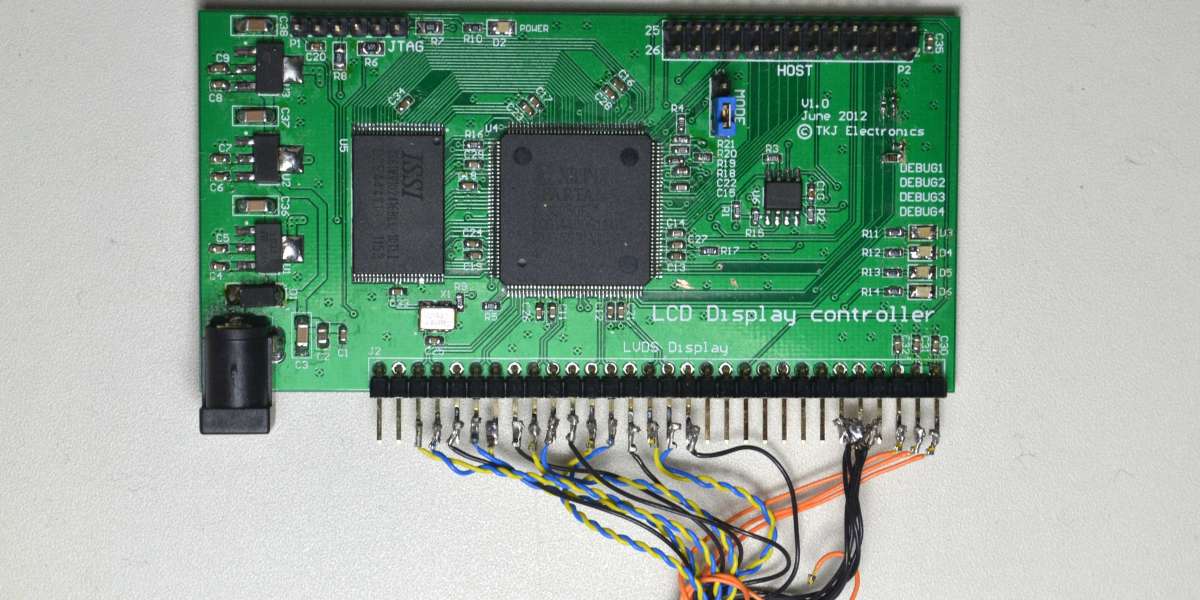Market Overview
According to Market Research Future (MRFR), Display Controller Market Size is required to develop at approx. USD 36 Billion by 2027, at 10% of CAGR somewhere in the range of 2020 and 2027. Substantial RD investments made into the development of the display controller and to advance related technologies boost the growth of the market. Also, the increasing adoption of smartphones with advanced displays is a major factor fueling the display controller market growth.
The global display controller market is growing continually. The market growth attributes to the increasing demand and adoption of LCD televisions, consumer appliances, and home appliances worldwide. Besides, rising sales of LCD automotive displays and appliances implementing the LCD technology drive the growth of the market. Moreover, increasing demand from various industry verticals like healthcare, education, corporate, government, and others escalates market growth.
Additionally, the increasing demand for consumer electronics and the growing need for sophisticated display controllers in teleconferencing substantiate the growth of the market. Besides, the rising demand for sophisticated display controller in order to make the communications hassle-free push the market growth. Rising trend of teleconferencing that is run at different places and can communicate through conference calls creates substantial market demand.
Request Free Sample - https://www.marketresearchfuture.com/sample_request/4020
Market Segmentation
The report is segmented into five dynamics;
By Display Type : LCD Controller, Touchscreen Controller, Multi Display Controller, Smart Display Controller, Graphics Display Controller, and others.
By Video Interface Type : VGA, WVGA, DVI, HDMI, VHDCI, Display Port, and others.
Display Controllers : Video Shifter, Video Interface Controller, Video Co-Processor, and others.
By Application : Appliances, Industrial Control, Medical Equipment, Office Automation, Automotive, Mobile Communication Devices, Entertainment Gaming, and others.
By Regions : North America, Europe, APAC, and Rest-of-the-World.
Major Players:
Players leading the global display controller market include LG Display Co., Ltd. (South Korea), Samsung Electronics Co., Ltd. (South Korea), Texas Instruments, Inc. (US), Novatek Microelectronics Corporation (Taiwan), Toshiba Corporation (Japan), Intersil (US), Seiko Epson Corporation (Japan), Fujitsu Limited (Japan), Solomon Technology Ltd. (Hong Kong), and RAiO Technology, Inc. (Taiwan), among others.
Introduction:
In today's fast-paced digital world, display technologies have become an integral part of our lives, enhancing user experiences across various devices. From smartphones and tablets to smart TVs and automotive displays, these devices require advanced display controllers to deliver high-quality visuals and efficient performance. The display controller market is witnessing significant growth as the demand for innovative display technologies continues to surge.
Expanding Consumer Electronics Sector:
The consumer electronics sector is experiencing tremendous growth, primarily driven by the rising adoption of smartphones, tablets, and smart devices. This proliferation of consumer electronics has created a strong demand for display controllers, which are essential components in these devices.
Shift Towards High-Resolution Displays:
Consumers today have high expectations when it comes to display quality. They seek vibrant colors, sharp images, and immersive viewing experiences. This demand has led to the emergence of high-resolution displays, such as 4K and 8K displays, in various applications. However, driving these high-resolution displays requires powerful and efficient display controllers. The MRFR press release highlights that the display controller market is expected to witness a surge in demand due to the growing popularity of high-resolution displays across industries.
Growing Significance of Touchscreen Displays:
Touchscreen displays have become ubiquitous, finding applications in smartphones, tablets, laptops, and even automotive infotainment systems. The integration of touch functionality with displays necessitates specialized touch screen controllers, which work in tandem with display controllers to deliver seamless touch response and accuracy. As per the MRFR press release, the display controller market is projected to witness significant growth due to the increasing demand for touchscreen displays in various sectors, including consumer electronics, healthcare, retail, and automotive.
Emergence of OLED and AMOLED Displays:
Organic Light-Emitting Diode (OLED) and Active-Matrix Organic Light-Emitting Diode (AMOLED) displays have gained immense popularity due to their superior image quality, high contrast ratios, and energy efficiency. These displays require specific display controllers optimized for OLED/AMOLED technology to deliver optimal performance.
Challenges in the Display Controller Market:
While the display controller market presents numerous growth opportunities, it also faces certain challenges. One of the primary challenges is the rapid pace of technological advancements. Display technologies are evolving at a staggering rate, necessitating display controllers that can keep up with the latest requirements. This places immense pressure on display controller manufacturers to continuously innovate and develop cutting-edge solutions.
Additionally, the growing complexity of display controller architectures poses a challenge in terms of design and integration. Display controllers need to support multiple display interfaces, high resolutions, touch functionality, and advanced features, all while maintaining power efficiency and compatibility with different device platforms. Overcoming these challenges requires significant research and development investments.
Browse More Details - https://www.marketresearchfuture.com/reports/display-controller-market-4020
Conclusion
The display controller market is witnessing remarkable growth due to the expanding consumer electronics sector, the shift towards high-resolution displays, the increasing significance of touchscreen displays, and the emergence of OLED and AMOLED technologies. However, manufacturers must navigate the challenges posed by rapid technological advancements and complex display controller architectures. By addressing these challenges and leveraging the opportunities, display controller manufacturers can position themselves at the forefront of this thriving market, catering to the evolving needs of consumers and driving the futureof display technologies.








